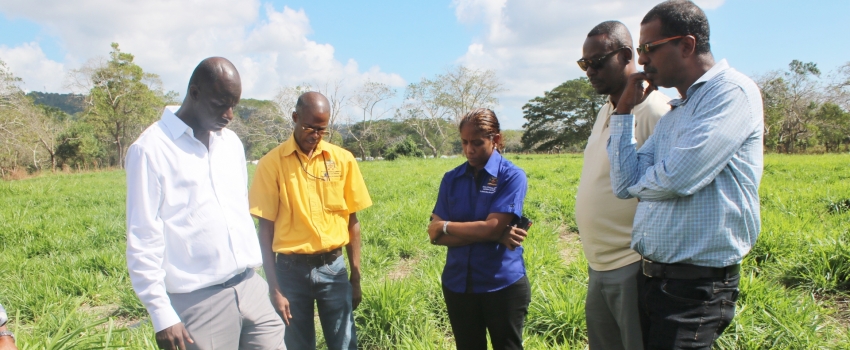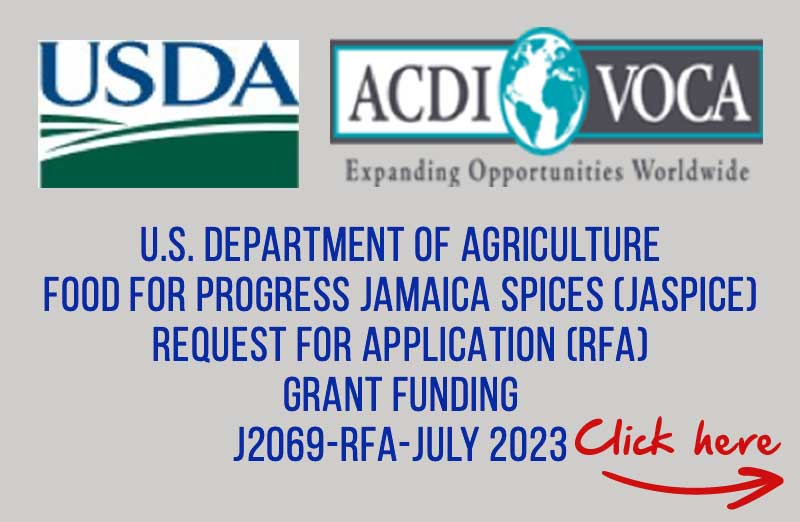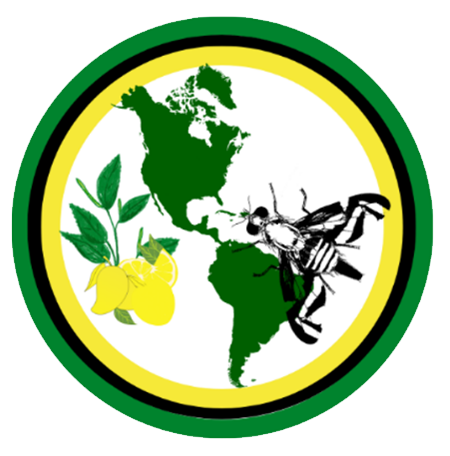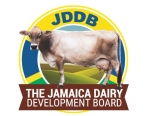
Donald Elvey, chairman of the Jamaica Dairy Development Board (JDDB), examines Mulatto 11 grass during a tour of one of the projects implemented by the JDDB in St. Thomas. As part of its drought mitigation strategy, the JDDB, in collaboration with Serge Island Farms, planted a 17-acre demonstration plot on land owned by Serge Island Farms to demonstrate the advantages of using it as fodder. Others from left are JDDB’s Hugh Graham, chief executive officer; deputy chairman, Dr. Sophia Ramlal; Everton Parkes, farming systems specialist; and Dr. Gavin Bellamy, general manager, Serge Island Farms.
Following the establishment of a fodder bank by the Jamaica Dairy Development Board (JDDB) on 17 acres of land, using the Mulatto 11 grass, Serge Island Farms is now reporting a 5% increase in milk production over the previous year.
This project is one of several fodder banks established by the Ministry, through the JDDB’s Dairy Sector Revitalisation Programme, covering 141.77 hectares of land where 23 small dairy farmers in Clarendon, St. Elizabeth, St. Catherine and St. Thomas have been provided with financial and technical assistance.
Speaking during a tour of the Serge Island fodder production area in Seaforth, St. Thomas, on January 26, General Manager of Serge Island Farms, Dr. Gavin Bellamy, had high praises for the new variety of grass, noting that it had allowed the company to produce a significantly greater amount of haylage than would have been produced using the African star grass.
Dr. Bellamy further noted that some 371 bales of haylage were produced from 6.9 hectares measuring 148,400 kilogrammes.
The Mulatto 11 grass was introduced by the JDDB in early 2016 as part of its drought mitigation strategy in an effort to enhance fodder production for use during periods of drought. The Mulatto 11 grass was selected because of its better nutritive quality and its capacity to produce more feeding material.
Byron Lawrence, coordinator of the Dairy Sector Revitalisation Programme, explained that this project became necessary as the increase in the frequency of droughts had resulted in changes in the growth and production of herbage and associated nutrient content. This brought about the need for supplementation to realize expected growth rate and avoid illness among the animals. This, he said, in turn resulted in increased costs to farmers and food costs to consumers.
Other strategies being implemented by the JDDB include establishment of silvo-pastoral systems using new and improved fodder cultivars and species, with enhanced adaptability to conditions of drought. Additionally, a programme of embryo transfer is being implemented to improve genetic diversity and improve animal performance.
-30-






















